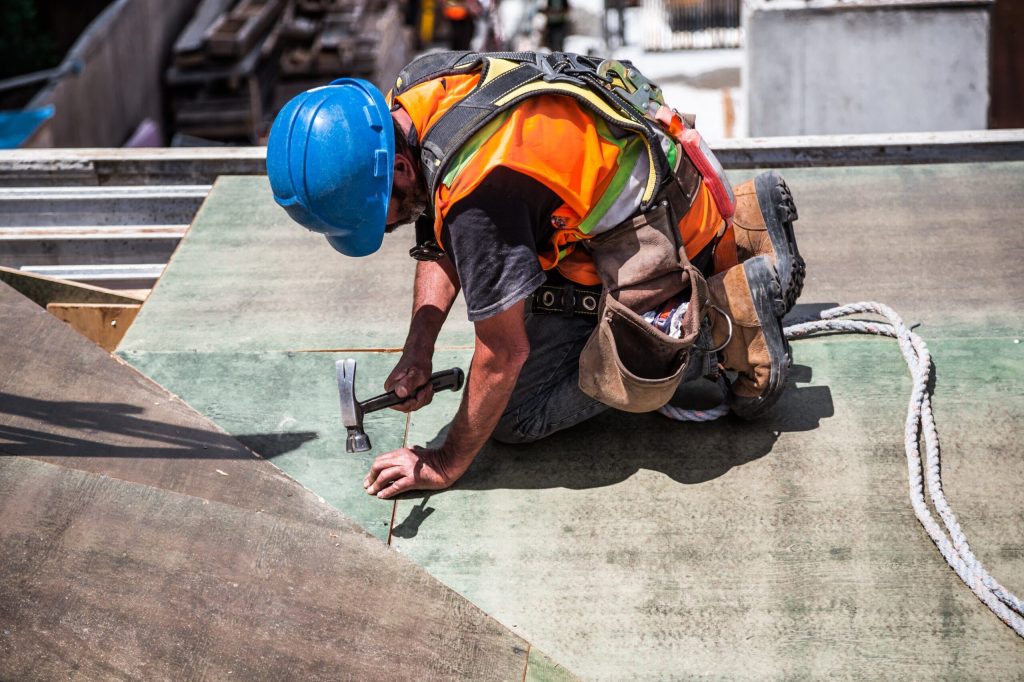Covid-19, Mental Health and Job Security in Construction

Danny Marinou, managing director of SMAS Worksafe, health & safety accreditation specialists for the construction industry, considers the impact that the current COVID-19 crisis could have on mental health within the sector
The Construction Leadership Council anticipates that employment across the construction sector will fall by around 10% by September this year. Though many construction workers have continued to work throughout the coronavirus pandemic, its influence is still being felt across the industry. The physical health challenges of working through a pandemic have been a major concern for builders as government guidelines and public health information has changed throughout the UK’s handling of the crisis. But for construction, an industry which was already struggling with a mental health crisis, the pandemic will likely make things worse before they get better in many respects.
The 2017 Stevenson/Farmer report ‘Thriving at Work’ found that men working in construction were 35% more likely to commit suicide than the national average. The Health and Safety Executive also reported that stress, depression and anxiety were up 10% in 2018, showing how the blight of mental health issues was taking an even stronger toll on the industry even before coronavirus became a threat. In the face of such difficult statistics, the mental health challenges of working through the crisis, as well as potential challenges in the near future, mean construction companies will need to work even harder to protect the safety of their staff and ensure those in the industry are well-supported.
Mental health challenges of the workplace right now
Though most industries have either shut down completely or shifted to home working patterns, the government stated that construction could continue in England and Wales. For those workers having to travel to work and interact with their colleagues at a time when most of the country was advised to only leave the house when absolutely necessary for shopping or to collect medicine, anxiety was likely much higher due to the threat to personal health. But aside from the personal threat to health construction workers may have been feeling during the past few months, the pandemic’s widespread influence in our lives has put further strains on individual wellbeing.
As the disease has been so widespread, it’s likely that many in the construction industry will have known someone who contracted the virus. As many have experienced, our inability to be in contact with our family and friends during this time has made the process of caring for loved ones and grieving for those we’ve lost even more challenging. In addition, the virus is expected to have a considerable impact on the global economy, with some forecasting another recession due to economic inactivity over the last few months. With a 40% drop in construction output announced by the ONS last month, contraction of the industry is going to leave more people without work at a time when jobs will be scarcer and money even tighter.
Mental health implications of staff layoffs and redundancies
There are currently 32% of direct employees furloughed across construction, as well as 43% of apprentices. 6.7% of these apprentices are anticipated to lose their jobs by September, which could in turn further contribute to skills shortages across the industry. With far fewer opportunities for training in construction, this could mean the industry will find it harder to recover as quickly as expected. The general threat of job insecurity, coupled with the looming global economic instability, will also contribute negatively to the mental health of construction workers.
Some construction companies will have already been working on tackling the mental health crisis facing the industry before the advent of Covid-19, establishing their own wellbeing policies and resources to help their employees deal with stress and anxiety. With the threat of major redundancies, this could also mean that employees will lose access to support services at a crucial time. If this is the case, a lot of the work many in the industry have put in to try to resolve the issues could be reversed. To help combat this loss of access, construction companies should make their staff aware of as many free to access resources tailored specifically to builders as possible.
Free mental health resources
While it’s a good idea for businesses to establish their own mental health support practices, this means help will be limited to those employed by the company, which will be unable to support those facing redundancy thanks to the current economic climate. For this reason, free resources should also be signposted to employees to ensure they have access to at least some support at all times. Organisations like Mates in Mind have a list of free support resources available, as well as a specific Covid-19 pack that is available to all.
The Lighthouse Construction Industry Charity offers a free app with advice and guidance on mental wellbeing and coping with stress and anxiety. The Lighthouse Charity’s mental health helpline saw a 25% increase in calls this April as many construction workers looked for support in the early stages of the lockdown. The helpline offers an excellent opportunity for workers to discuss their feelings and concerns with experienced and supportive staff but the app is available for those who feel less confident discussing their feelings.
Though the coronavirus pandemic has thrown countless challenges at the general public, many of which have been adapted to generally well, the struggles arising from the dramatic shift in our daily lives will no doubt be felt for a long time to come. Even as the construction industry grapples with the economic fallout of the pandemic, it’s important that leaders in the industry continue to focus on mental health and ensure their staff and those around them are aware of the support they can access at all times.


